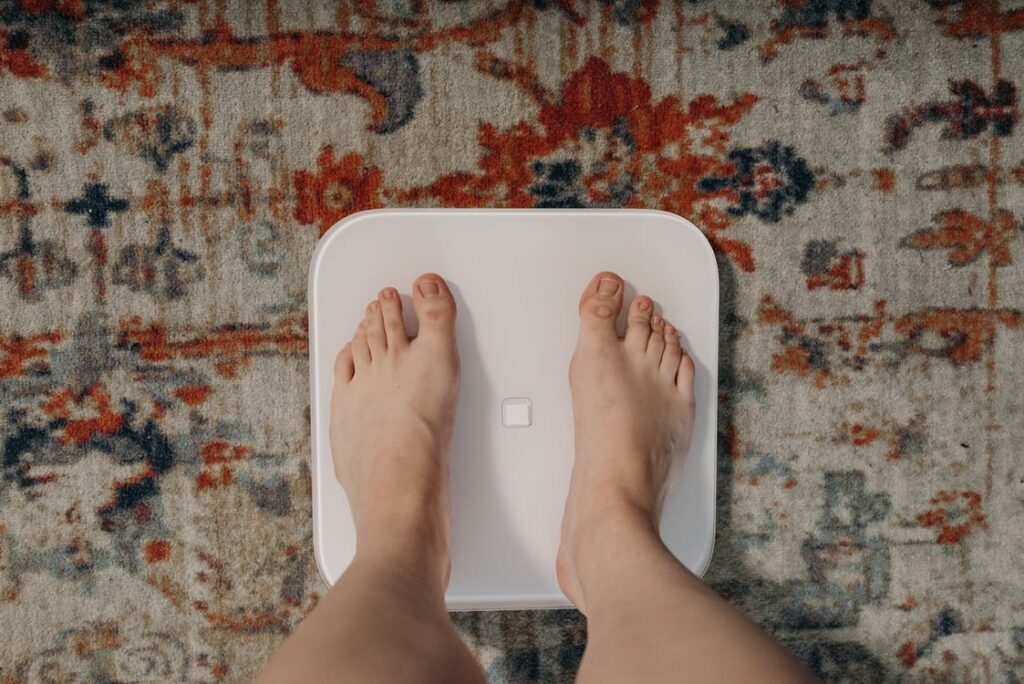What is Obesity?
Obesity is the excessive storage of fat in the body that leads to health problems. The Body Mass Index (BMI) is used to measure body size. A BMI of 25 and higher is considered to be overweight. A person is said to be obese if their BMI is 30 or above.
How does lifestyle affect weight?
Your weight is controlled by two factors: Food and physical activity. However, maintaining a healthy weight is not as simple as eating calories and burning them with exercise. Your daily routine, habits, and environment also affect your body weight. Poor nutrition, irregular sleep, and a sedentary lifestyle are some factors that can lead to excessive weight gain and obesity.
Problems caused by being overweight
- Being overweight can impair your daily life. Excess weight leads to poor stress management, hormonal imbalance, breathing problems, and low energy. Overweight people are also at a higher risk for depression.
- Obesity puts you at risk of chronic health conditions such as diabetes, high blood pressure, cancer, heart disease, stroke, etc.
- Excessive body weight can decrease your lifespan. Reports say that more than 4 million people die every year due to being overweight and obese.
5 Healthy Habits to Help Fight Obesity
1. Start the day with a filling breakfast
Eating a nutrient-rich meal in the morning helps you avoid food cravings throughout the day. It also stops you from reaching out for unhealthy snacks. Your first meal should give you plenty of protein, fiber, minerals, and vitamins for enough energy to get through the day. This includes whole foods, lean protein, fresh fruits, nuts, and seeds.
A full meal at the beginning of the day also helps you feel full for longer. This controls blood sugar and reduces the risk of type-2 diabetes.
2. Limit screen time
Spending long hours looking at your phone, TV, or laptop can disrupt your lifestyle and contribute to obesity. Here’s how:
- Looking at a phone or TV screen while eating results in over-eating
- The blue light emitted from electronic device screens signals your brain to stay awake. This interferes with your sleep cycle.
- Exposure to screens for long hours puts pressure on the central nervous system. This results in stress, anxiety, aggression, and poor mental health. High levels of stress can result in overeating.
Staring at screens for long hours leads to more time spent sitting. Studies have found that adults who spend most of their day sitting are at a higher risk for obesity and obesity-related diseases.
To cut down on screen time:
- Take frequent breaks while working on your computer.
- Get up and walk around for a few minutes every few hours.
- Keep your phone and other devices away an hour before you sleep.
3. Get regular exercise

Exercise is an important aspect of weight management. Activities like walking, jogging, cycling, and yoga are easy to do for people of all ages and do not tire you out easily.
Your exercise routine should include:
- 150 minutes of moderate-intensity cardio every week
- Strength training exercises performed 2-3 times a week
All forms of physical activity contribute to overall fitness. Staying active throughout the day by stretching, taking the stairs, and counting your steps goes a long way in reducing the risk of obesity-related diseases.
4. Get up to 7-8 hours of sleep
Not getting sufficient sleep at night leads to excessive weight gain.
- Lack of sleep increases the levels of the stress hormone Cortisol.
- It increases the release of Ghrelin, the hunger hormone.
- It lowers the production of Leptin, the hormone responsible for feeling full.
These factors together trigger cravings for high-calorie comfort food. Irregular sleeping habits make you feel tired and less inclined to exercise. All of this contributes to excessive weight gain.
Ample sleep is required to support weight management. Adults are recommended to get 7-8 hours of good quality sleep every night. Young children need between 9 9-11 hours of sleep, and seniors need to sleep for 8-9 hours.
5. Reduce your intake of refined food

Refined and processed foods include maida, white bread, refined sugar, soft drinks, potato chips, desserts etc.
Refined foods are calorie-dense and have almost no nutrients, which means that they don’t benefit your body in any way.
These foods are high in fats, sugar, and salt, and have very little fiber. This creates a rush of dopamine in the brain and leads to food cravings, overeating, and eventually, obesity.
To stay at a healthy weight, eliminate refined foods from your diet as much as possible. Switch to naturally sweet fruits, juices, whole grains, lean protein, and nuts and seeds to satisfy your cravings.
The Bottom Line
Obesity affects a large part of the world. An unhealthy lifestyle is the most prominent cause of excessive weight gain. Adopting healthy habits and lifestyle changes for the long term helps in managing your body weight.
If you fall in the overweight and obese category, your physician can guide you on the best approach to managing your weight with healthy lifestyle changes.
